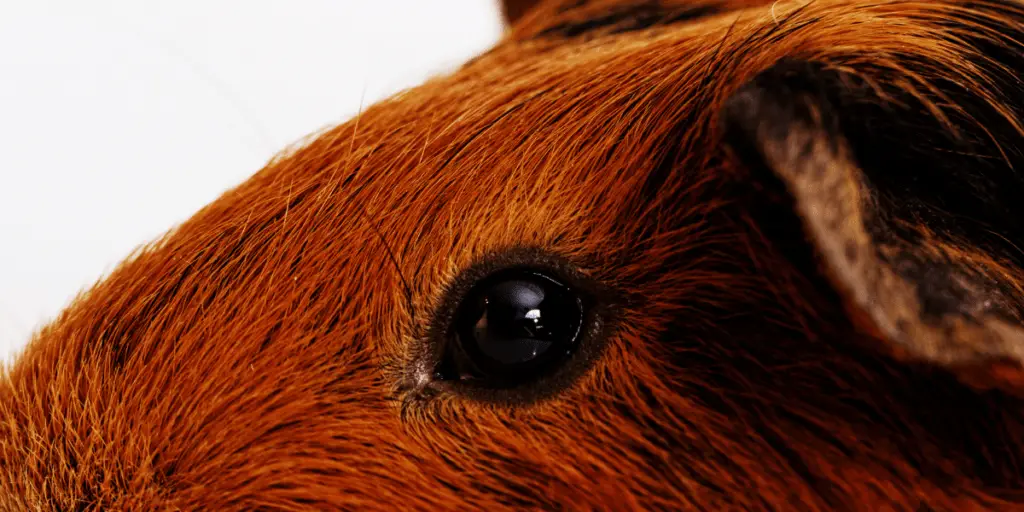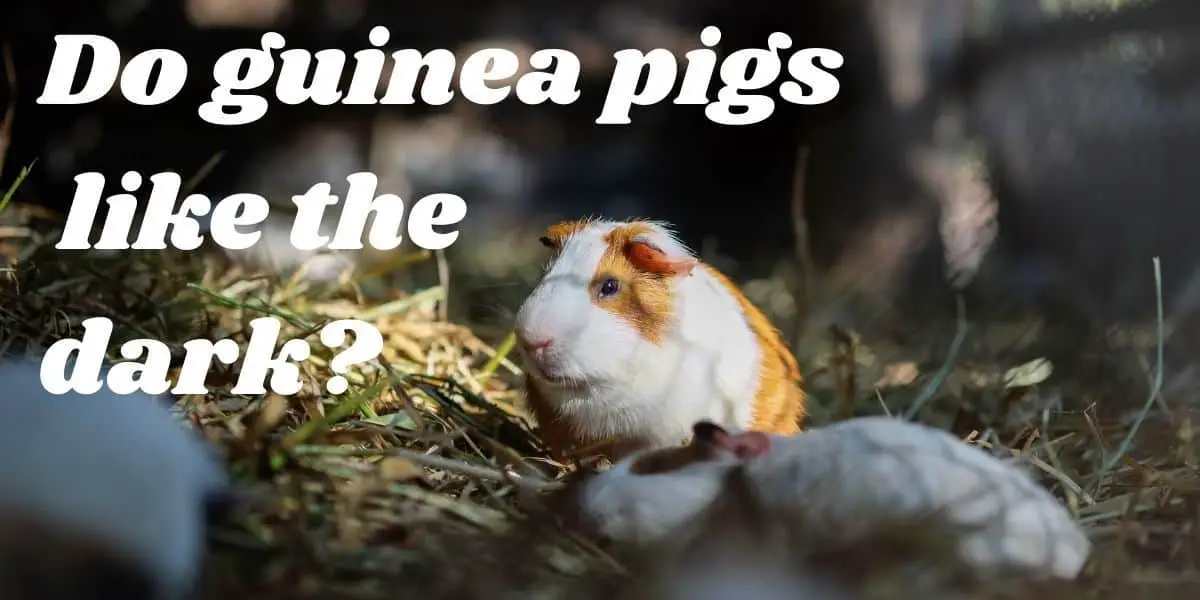One of the best things about owning guinea pigs is the amount of time you can spend enjoying their antics day or night. They love good company too and you may even have encountered them up, about, and ready to play at all sorts of crazy hours!
But for any household, the time for fun and games has to end, and the lights need to be switched off. Are you worried about leaving your furry friend in the dark? Thinking about getting a night light?
If you are, we hope this short article answering if guinea pigs like the dark, helpful and reassuring.
Table of Contents
Nighttime is the right time for your pet guinea pig!
Thankfully you can rest easy as guinea pigs are entirely comfortable in complete darkness, and will not let the dark hinder their movement or other activities. These rodents are adept at navigating subterranean networks of tunnels or dense undergrowth and are highly reliant on touch, smell, and sound and a superb memory to navigate their cage in the dark.
Your Guinness pig will remember its pathways around its cage, down to pieces of shredded or flattened bedding as it navigates in darkness.
Its whiskers are designed to be exquisitely sensitive and will aid the guinea pig in feeling its way around while a powerful sense of smell guides recognition and interaction with any nighttime companions.
A closer look at guinea pig eyesight
Even with the lights on, your guinea pig does not primarily rely on eyesight for moving around efficiently.
This is because guinea pigs have relatively poor eyesight despite their large, protruding, symmetrical eyes. They are farsighted, seeing distant objects with greater clarity and detail than those that are near (hyperopia), and have a wide field of vision.

Compared to humans eyes, guinea pigs have limited distance and color vision and like rabbits and other small mammals, guinea pigs rely on their whiskers, sense of smell, and keen hearing to more than compensate for any deficit in near vision.
These adaptations mean that your guinea pig will know where they are going in light or darkness. If you turn the lights out the guinea pig will be adapted to the darkness within minutes.
Guinea pigs need a light-dark cycle
All guinea pigs require a certain amount of light and darkness to remain healthy. They need periods of complete darkness and do not need a nightlight when the lights are out.
Because guinea pigs are widely used in medical research, academics have closely studied the optimum conditions required for their welfare. Light and darkness are critical to the physiological well-being of guinea pigs.
Intense or prolonged artificial lighting can affect guinea pigs by triggering oestrus in female guinea pigs, causing changes in visual acuity, and even affecting the nursing behaviors of the sows.
The sleep-wake cycle of Guinea pigs has been investigated with observations of physiological indicators like heart rate, temperature, and activity levels.
Surprisingly, the presence of a circadian rhythm cannot be taken for granted with some guinea pigs having a complete absence of a distinct pattern of sleep and waking.
In guinea pigs with an absent circadian rhythm, there was a marked increase in activity when the lights were switched on and immediately after turning them off.
Your guinea pig will get on with things whether the lights are on or off.
With a stable temperature, guinea pigs have comparable levels of activity whether the lights are on or off, with 70-90 minute cycles of activity alternating with similar rest periods.
These cycles are independent of the presence of light or darkness though the guinea pigs prefer to nest under a cover of bedding when resting.
With natural lighting, guinea pig behavior is more crepuscular and like rabbits and other smaller mammals, they will be more active at dawn and dusk.
Wild guinea pigs are more sensitive to other environmental factors like temperature and the availability of food than the duration of sunlight.
A stable cycle of lighting and complete darkness is best.
Most guinea pig owners follow this pattern by maintaining a steady cycle of 12 hours of light (natural or artificial) and a further 12 hours of darkness. Studies suggest that up to16 hours of light and 8 hours of darkness may be acceptable.
Making guinea pigs comfortable day or night.
Because your fluffy friends are power napping every 90 minutes your efforts are best directed to providing places where they can get their rest.
The science geeks have found that guinea pigs will actively seek out and spend daylight periods in sheltered areas which they find reassuring.
Though light does not preclude sleep they do prefer shelter. Provide an enclosed shelter with fresh nesting material for them to hide themselves away in. You will find that they love it.
Rounding up.
Your guinea pig is remarkably adapted to life in the dark and in fact, needs at least 8 hours of deep darkness to stay their cheerful selves. So feel free to turn out the lights out, and don’t let your guinea pig keep you up tonight!




